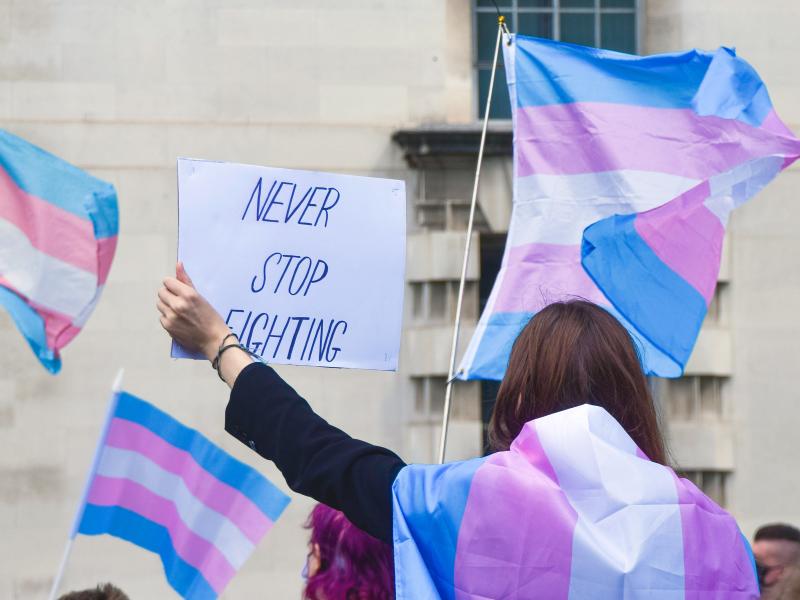Ensuring transport workers, especially women, have safe access to decent sanitation is critical for ensuring health, safety and dignity at work.
Real action is needed now to end the crisis of a continuing lack of safe access to decent sanitation facilities – that is the message from transport trade unionists from around the world marking World Toilet Day today (November 19).
The ongoing failure to ensure safe access to decent sanitary facilities, sanitation systems, and most importantly the ability to use those facilities when needed, is an affront to human dignity that is widely and deeply felt by all transport workers.
However, it causes particular problems for women transport workers, putting them at risk of violence, harassment, stigma and ill health – it denies women of dignity and is effectively a barrier to employment. For maritime workers, a number of specific issues are consistently highlighted, all of which can and must be urgently resolved.
“Women seafarers are accustomed to a reality where we can’t find the menstrual products we need on board a ship, what we need to dispose of those products, or even the access to a toilet near where we are stationed – and, sadly, too often these issues just aren’t taken seriously,” said Lorena Pintor Silva, International Transport Workers’ Federation (ITF) Seafarers’ Section Women’s Representative, and member of SINDMAR, Brazil.
The continuing lack of safe access to sanitation threatens the seafaring industry as a whole as it faces an entrenched recruitment and retention crisis.
Pintor Silva added: “Women seafarers know these experiences well, how we have to pack supplies of sanitation products to last months at sea, how we fear asking for what we need onboard because of how we know some of our male crew members will respond. It creates stigma for women – and that means women seafarers being turned away from a life at sea.”
A crucial recent win for maritime workers was a Maritime Labour Convention amendment won after a joint International Labour Organization-International Maritime Organization Tripartite meeting in April 2025. Guideline B3.1.10, due to come into force in December 2027, states that “appropriate and sufficient menstrual hygiene products and means of disposal should be available for seafarers”.
While legislative wins like the MLC amendment are vital steps forward, safe access to sanitation remains a profound challenge for maritime workers globally.
“We’ve seen some improvements for women dockers, but far too few and only in particular locations,” said Jessica Isbister, ITF Dockers’ Section Women’s Representative, and member of the International Longshore and Warehouse Union (ILWU), Canada.
“So, while we’ve seen some real change in Canada, for many women dockers around the world, the struggle to turn legal rights into lived reality is real and goes on every day. This is precisely why we must use World Toilet Day as an opportunity to remind governments, companies and investors that we urgently need change that meets the specific needs of women, transgender and non-binary workers.”
This need for change extends beyond ports to other maritime sectors, highlighting that this is a systemic issue across the maritime industry.
“Women working on tugboats and on our inland waterways face precisely the same problems as women working at sea – what we are demanding are not luxuries, they should be ours by right,” said Olga Losinskaya, ITF Inland Navigation Section Women’s Representative, and member of ver.di, Germany.
“This is about respect for women’s rights and the provision of a safe and healthy workplace – how many more times must we come out and demand that our basic human dignity is respected?”
Tools to win: the ITF Sanitation Charter and Toolkit
To ensure that these demands of dignity and safety become a reality for maritime workers – and transport workers across all sectors – the ITF has produced essential resources for unions and activists on the ground.
On World Toilet Day 2019, the ITF launched its Transport Workers Sanitation Charter to outline its key demands. These include:
- Access to secure and clean toilets for women and men, which are well lit inside and outside
- Ventilated, lockable cubicles
- Appropriate hygiene (washing) facilities with clean water
- Affordable and appropriate menstrual hygiene products provided
- Paid rest breaks for transport workers who should be able to access toilets when they need them during working hours - without delay, and with no loss of income
The ITF's Sanitation Toolkit provides trade unionists, activists, and transport workers with the practical resources, research and campaign materials needed to turn the demands of the Charter into reality. It is a vital, living resource to help unions negotiate for and win sanitation rights in workplaces globally.
Find the full ITF Sanitation Toolkit here: sanitation.itfglobal.org



